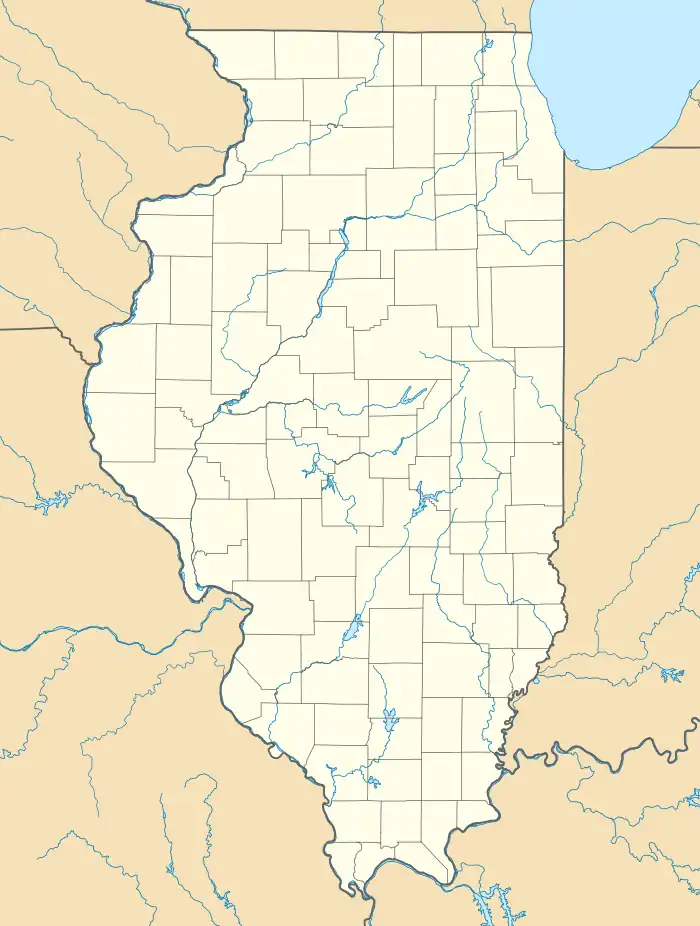| Onterie Center | |
|---|---|
 | |
 Location within Illinois | |
| General information | |
| Type | Residential |
| Location | 441 East Erie Street, Chicago, Illinois |
| Coordinates | 41°53′38″N 87°36′59″W / 41.8939°N 87.6165°W |
| Completed | 1986 |
| Height | |
| Roof | 570 ft (170 m) |
| Technical details | |
| Floor count | 60 |
| Design and construction | |
| Architect(s) | Fazlur Rahman Khan (Skidmore, Owings & Merrill) |
The Onterie Center is a sixty-story award-winning high rise in downtown Chicago, Illinois, United States. It is located at 441 East Erie St, and takes its name from a conflation of "Ontario" and "Erie", the streets at its two entrances.
Designed by Skidmore, Owings & Merrill, construction was completed in 1986. The building is two towers: a 60-story Main Tower and an 11-story Auxiliary Tower. At 570 feet (174 m), the Main Tower claims its place among the 50 tallest buildings in Chicago.
The building is considered the "final work" by respected Bangladeshi-American structural engineer and designer Fazlur Rahman Khan.[1] Completed after his death, the diagonal brace structure is dedicated to Khan, and serves as an architectural nod to his John Hancock Center. The X formations on the exterior are concrete infill panels which act together to form a truss tube. There are no steel beams behind them. A similar structured building, 780 Third Avenue in New York City, was completed in 1983. Onterie Center is the first concrete high-rise in the world to use diagonal shearwalls at the building perimeter. This type of design uses fewer columns and allows for a distinct unit layout. In 1986 this building won the Best Structure Award from the Structural Engineers Association of Illinois.
In addition to its 594 apartments, Onterie Center also includes more than 140,000 square feet (13,000 m2) of office space (13,000 square meter), nearly 16,000 square feet (1,500 square meter) of ground-floor retail space, an 11,750-square-foot (1,100 square meter) health club facility with indoor swimming pool, and a 363-space, above-grade parking garage.
See also
References
- ↑ Ali, Mir M. (2001). "Evolution of Concrete Skyscrapers: from Ingalls to Jin mao". Electronic Journal of Structural Engineering. 1 (1): 2–14. Retrieved 2008-11-30.